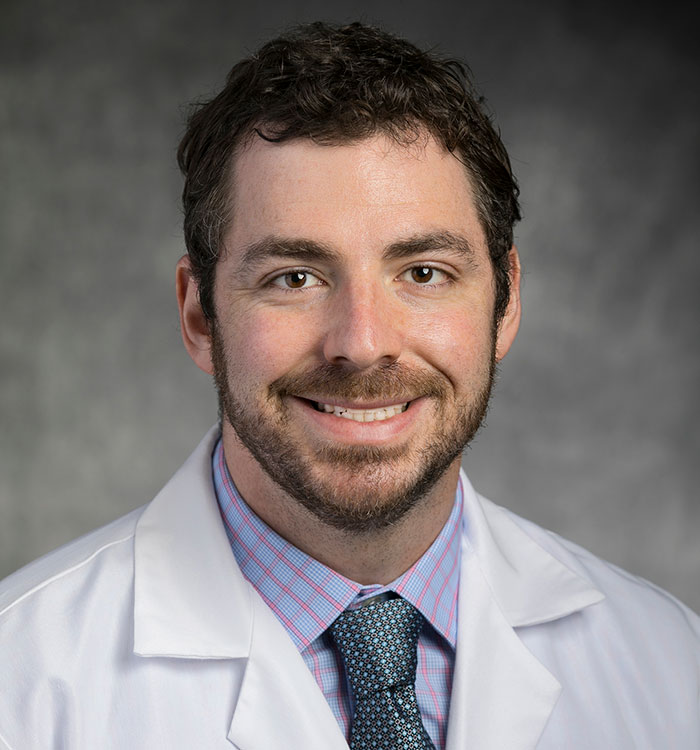UH Seidman Cancer Center Using Machine Learning, Novel Statistical Methods to Identify Prostate Cancer Therapies
December 06, 2021
Urologic oncologist Jonathan Shoag, MD, finding new roles for old drugs
Innovations in Cancer | Fall 2021
Scientists seeking new weapons against cancer employ high-throughput screens to rapidly test thousands of agents for biological activity at the model organism, cellular, pathway or molecular level. It’s painstaking work, even with the increased speed afforded by automation, with “hits” needing to be validated in further experiments. Testing candidate agents in actual patients can seem a long way off.
 Jonathan Shoag, MD
Jonathan Shoag, MDWhat if there were another way?
At University Hospital Seidman Cancer Center, surgeon-scientist Jonathan Shoag, MD, is reimagining the high-throughput screen in the search for better therapies against advanced prostate cancer. The difference? Clinical data from thousands of patients are the starting point, not the ending point, turning the prevailing paradigm on its head.
“When you think of a typical high-throughput screen, you think of testing thousands of drugs on a cell line or a protein to see if any of them have activity, and the next step after that is your validate that result,” he says. “Instead of using cells or proteins as the input for our screen to identify hits, we use clinical data. That’s a pretty novel thing to do. It reverses the usual kind of workflow. We’re starting with activity in humans and then going back figuring out how these drugs work in cells and mice.”
In order to accomplish these “high-throughput” screens in clinical data, Dr. Shoag and his colleagues have leveraged the observation that pathways active in the normal prostate may retain their centrality in prostate cancer. They then apply machine learning and novel statistical techniques to large-scale patient data to find drugs with activity. Importantly, the clinical data fed into Dr. Shoag’s high-throughput screens is from a large, diverse groups of patients exposed to a wide range of therapies.
Dr. Shoag has received support for this work from a nearly $500,000 Physician-Scientist Training Award from the Damon Runyon Cancer Research Foundation. To date, he is the only urologist to have received this award.
“The cell of origin of prostate cancer shapes its behavior,” Dr. Shoag explains. “This is evidenced by the remarkable success of targeting prostate cancers’ dependence on androgen signaling, a conserved feature from the normal prostate. Defining other susceptibilities conserved from the normal prostate would inform disease biology and guide therapy for advanced disease. Our hypothesis is that drugs and targets identified based on observed activity in the normal prostate can be repurposed for prostate cancer.”
Currently, Dr. Shoag is testing candidate agents that have been identified through his high-throughput screens in mouse models and patient-derived xenografts.
“There are promising candidates that seem to have effects both in mouse and human models of prostate cancer,” he says. “We’re now gathering preclinical data and are developing clinical trials.”
He and his team are working closely with Afshin Dowlati, MD, who leads UH Seidman Cancer Center’s acclaimed early clinical trials program, to expedite passage from the laboratory to the clinic. In the meantime, they’re also working to validate their results and pinpoint just how identified candidate agents exert their activity against prostate cancer.
It’s an ambitious scientific agenda, but one warranted by the stark clinical need, Dr. Shoag says.
"Despite everything that we do, screening, imaging, biopsy, radiation, surgery, hormone therapy, and the development of newer agents over the past decade, 2% of white men and 4% of black men will die of prostate cancer, and many more will develop metastatic or locally advanced disease that will affect their quality of life," he says. “Those numbers are staggering for a cancer that emerges from a tiny gland deep in the pelvis. We need better treatments. Identifying drugs against prostate cancer that can be rapidly deployed is critical.”
To reach Dr. Shoag, email Jonathan.Shoag@UHhospitals.org, or to refer a patient, call the UH Urology Institute at 216-844-3991.
Contributing Experts:
Jonathan Shoag, MD
Urologic Oncologist
UH Urology Institute and UH Seidman Cancer Center
Assistant Professor of Urology
Case Western Reserve University School of Medicine
Afshin Dowlati, MD
Rosalie and Morton A. Cohen Chair in Oncology
Lucile and Robert H. Gries Endowed Director, Center for Cancer Drug Development
University Hospitals Seidman Cancer Center
Professor of Medicine
Case Western Reserve University School of Medicine


